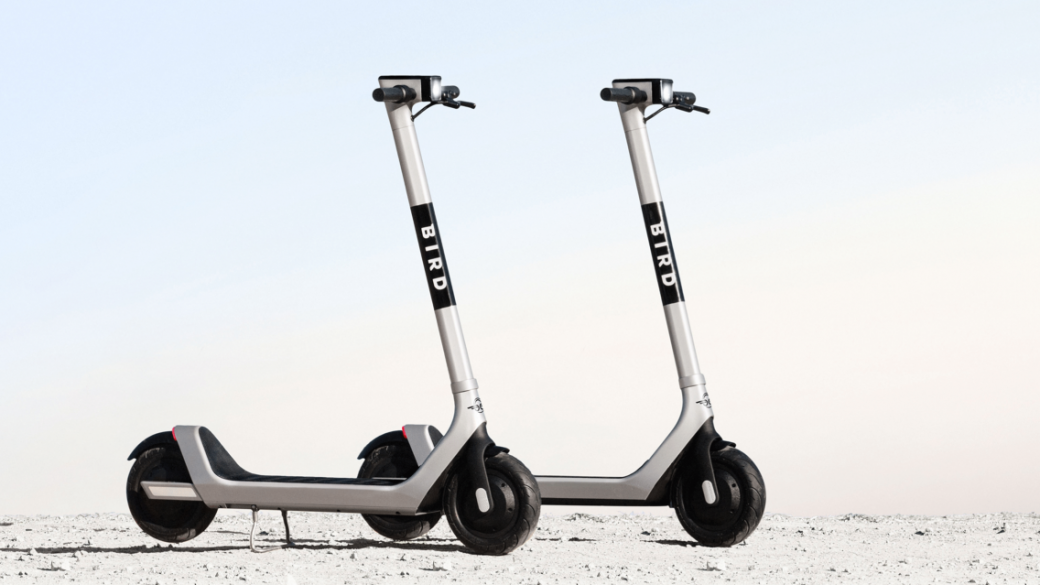The Silicon Valley Invests in Push Scooters
Risk financing for hundreds of millions and the emergence of the first billion worth project in the sector mark the fast-growing obsession with the catchy electric vehicles

Photo: Bird
One of the most significant equity investments in the US start-up ecosystem this year was made by the Sequoia Capital fund and several other organisations earlier this summer. They invested a total of USD 150 million in the starting Bird project, which deals with... push scooters. If you're wondering why an investment fund focused primarily on the technology sector and known for its early investments in companies such as Google, PayPal, Airbnb, LinkedIn, Instagram, Reddit, Tumblr and Square would put their money into a start-up for push scooters, you have probably missed the rapid development of this segment in recent months.
The New Platforms for Urban Mobility
Before we describe the development of this new industry, we have to clarify two important things. The first is that we are not just talking about push scooters, but about electric ones. The second is that Bird, as well as other promising projects in the industry, do not deal with selling the two-wheeled vehicles, but develop platforms for renting them. For this purpose, consumers access a mobile application to find the nearest free scooter and “unlock” it. Once they have reached the desired destination, they just lock the scooter and leave it at the disposal of someone else. A model used by the Bulgarian electric car start-up Spark, as well as many other car or bicycle rental platforms in a number of cities around the world.
However, to the surprise of many, scooters turned out to be a real hit due to their compactness, the ability to be folded (if you have to climb stairs or take the metro for a few stops), as well as their easy use. That is why it is no wonder that the number of start-ups in this area is growing at a rapid pace. The successful attraction of a risky investment of USD 150 million turned Bird into
The First Unicorn in This Sector
For the uninformed, a “unicorn” in the start-up societies means a company that has reached a market capitalisation of over USD 1 billion, mainly by attracting risky funding. Shortly after, Bird managed to carry out a new round of funding that doubled the company's worth to USD 2 billion. The company may be the most popular, but it is far from being the only promising project for push scooter rental. LimeBike and Spin are also among the names in the industry, whose business is growing at a rapid pace. The first one has already attracted USD 250 million of risky capital, while the second one, after relatively modest funding attempts that led to the attraction of “only” USD 8 million, made a decision to carry out the so-called ICO (Initial Coin Offering) or “listing” of blockchain based tokens. The idea turned out to be extremely successful, and about a month ago, it brought to the company USD 125 million of investments. Despite the fact that the ICO market is currently on the downturn. It seems that investors are just crazy about electric scooters.
Why the Interest
Push scooters are developing the fastest in cities like Los Angeles and San Francisco where the traffic is overloaded and the citizens are looking for all sorts of alternative transportation. At the same time, the climate is suitable for open personal vehicles. And if we add the typical for these cities spirit of innovation and a positive attitude towards novelties, it is quite logical for scooters and bikes to turn into a factor in the overall transportation mix. With the new investments, however, Bird, Lime and other players have already begun their expansion along the East Coast of the United States.
Potential Problems
Issues could arise mainly in connection with the regulation and the relations with local authorities. There is no way for an activity related to renting push scooters, which suggests leaving them at random public places, to avoid this aspect. And although for now municipalities, at least in the US cities, are cooperative, the growth of this new industry took them by surprise and they are still reacting too slowly to the trend. Some start-ups have already established partnerships with shopping centres to secure their positioning at better locations and increase their popularity.
Big IT companies are already looking at the sector, though they are not taking any specific steps to enter it. Uber has recently acquired the bike rental service - Jump, and its competitor Lyft has bought another promising bike player - Motivate. Still, none of the technology giants have shown any interest specifically in the push scooter platforms. And it is possible that soon they may turn out to be late, because the sector is developing more and more dynamically. According to many, it is very likely that in the near future the scooter will take the place of the bicycle as a preferred personal means of transportation in urban environment and will contribute to shaping the look of the “smart” cities of the future.

 Alexander Alexandrov
Alexander Alexandrov 


